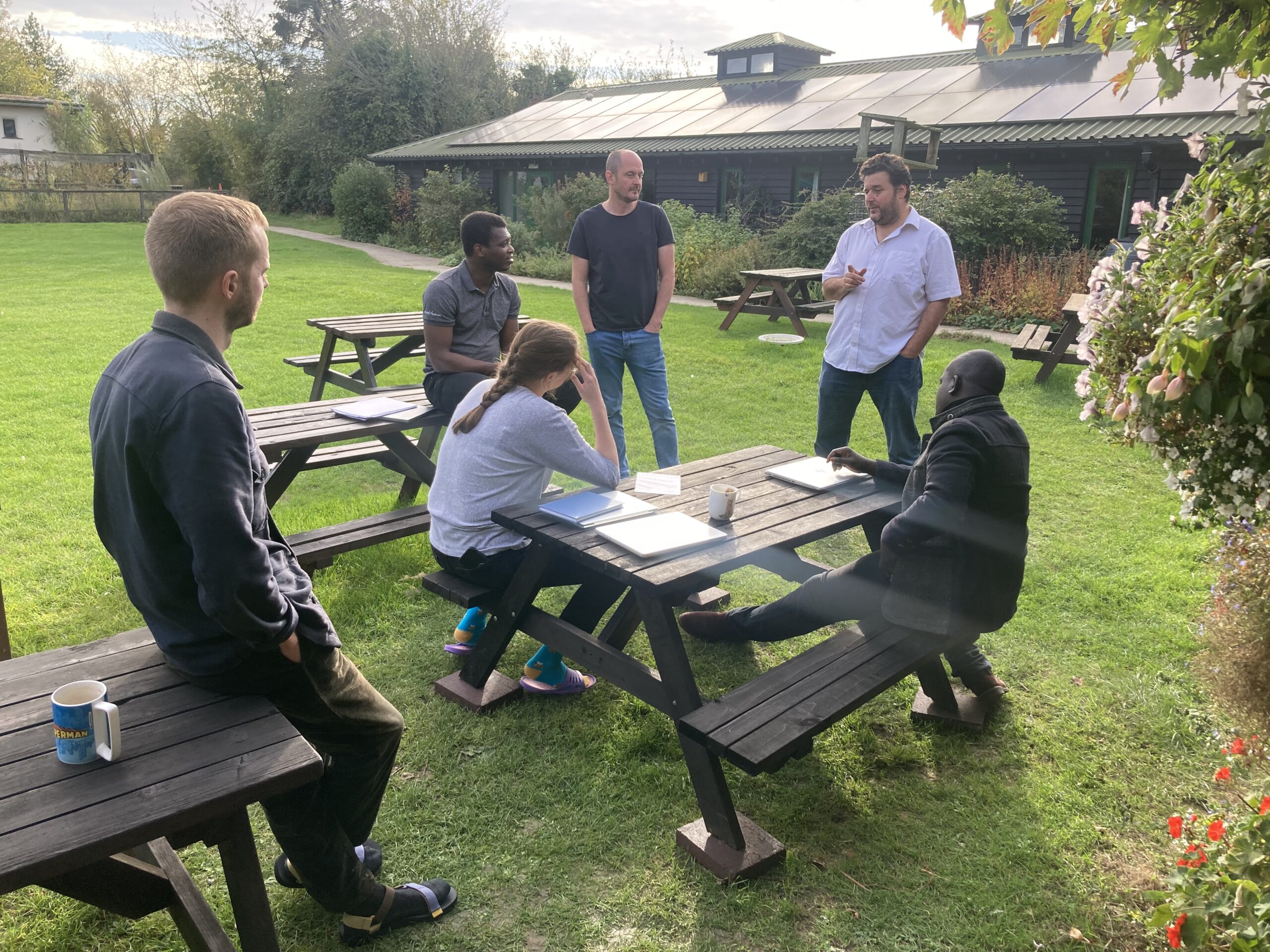
About IDEMS

IDEMS is a UK-based social enterprise building inclusive, impactful digital technology that works in and scales across global social, economic and environmental complexity.
Founded in 2018, IDEMS is a technology social enterprise with a vision and mission to develop inclusive, sustainable open-source digital infrastructure, interventions and products that work in, for and across variable low-resource environments.
IDEMS innovation emerges from long-term, research-based collaborations with global experts, NGOs and local communities to develop digital solutions and interventions able to responsibly, adaptively scale to address global grand challenges—the complex development problems (sometimes also referred to as “wicked problems”) that are impervious to simple, one-size-fits-all solutions and ill-served by most existing tech platforms and services.
We are a home for mathematical scientists developing impact innovation at the intersection of mathematical and social complexity. We attract top mathematical scientists by offering a challenging and rewarding “third way” career path as an alternative to traditional careers in academia or commercial business.
Our deep experience in developing, and creating new opportunities for, next-generation global mathematical talent from secondary school through to the postdoctoral level helps us create our own pipeline of highly skilled, expert talent.
Addressing
an unsolved
global problem
Most existing technology platforms and solutions can’t support the inclusive, cost-effective, sustainable scaling of impact innovation across variable low-resource social, economic and digital complexity.
Mainstream software platforms, products, and solutions—developed in and for high-resource users and often to serve financial shareholders over community stakeholders—aren’t designed to work in variable low-resource contexts or address the complex global problems that disproportionately affect marginalised and underserved communities.
Existing tech is defined by:
As a result, global NGOs, experts and governments, along with local organisations and users, struggle to unlock the potential of digital technologies in collaboration with each other and local communities to address the world’s most pressing challenges.

The need: sociotechnical innovation for
low-resource digital participation and inclusion
Software and solutions that
work in, for and across variable underserved contexts…
Low-resource and underserved communities have varying digital access, literacy and practices, and divergent cultural, education, and communication norms. Even within a single intervention, different information, user experiences, and digital services are needed to meet users where they are to achieve uptake and desired impact.
…and enable multidirectional
collaboration among global
teams & programmes
Grand challenges require multidirectional information sharing, bringing together expert research and local knowledge, to unlock innovation through collective intelligence. A complex web of global-local, transdisciplinary programmes and teams, information, and behaviours must be able to work collaboratively to meaningfully address systemic global challenges.
Vision & Mission
Grounded in the guiding IDEMS principles (link), our vision and mission
reflect our belief that technology should work in service of all communities and people to create meaningful, measurable social and economic impact.
VISION
A responsible, inclusive future where technology works for everyone to address the world’s most pressing social, economic, and environmental challenges
MISSION
IDEMS works collaboratively with innovative experts and communities around the world to support the development and evolution of responsible, inclusive digital innovation that addresses global grand challenges. We:
- Build and contribute to maintaining digital software, products and interventions that work affordably and reliably in, for and across low-resource, underserved contexts and users.
- Bridge high-resource and low-resource digital environments, practices and teams.
- Enable and normalise collaboration among global experts and local communities, which contribute context-specific knowledge, practices, and relationships to research, development and adaptation.
- Identify, educate and train the next generation of mathematical science talent from leading universities and underserved communities globally to develop, manage, and contribute to inclusive digital innovation.
A talented global team
IDEMS is a home for PhD mathematical scientists, social scientists, and applied technologists who are helping realise the potential of technology to work for everyone.
[tmfshortcode id=”6591″]
A profitable nonprofit
As a UK-based Community Interest Company, IDEMS is structured to enable us to prioritise community and stakeholder interests while running a commercially sustainable business.
Fundamentally
profitable
IDEMS was founded on the understanding that we can only grow and achieve our ambitions by embracing the entrepreneurial nature of our work – and the enterprising part of being a “social enterprise”. Our business practices are built on ambitious growth-driven strategy, objectives and activities. Our approach prioritises building a dynamic and competitive team and developing open-source impact tech solutions and products based on long-term, sustainable business models.
Not-for-profit
IDEMS is structured as a not-for-profit company limited by guarantee. Our nonprofit status means that profits cannot be passed to individuals or shareholders and must be retained within the company for growth and expansion to serve our mission.
Profits can also be used for social impact projects and donations to designated charities.
Social enterprise
IDEMS is an active member of Social Enterprise UK and committed to business practices that prioritise the interests of communities and community stakeholders over those of financial shareholders.
We are committed to supporting the growing network of social enterprise
in the UK and internationally and advocating for a growing social enterprise movement globally. Where possible, we support the “buy social” movement and we actively look for ways to support fellow social enterprises.
